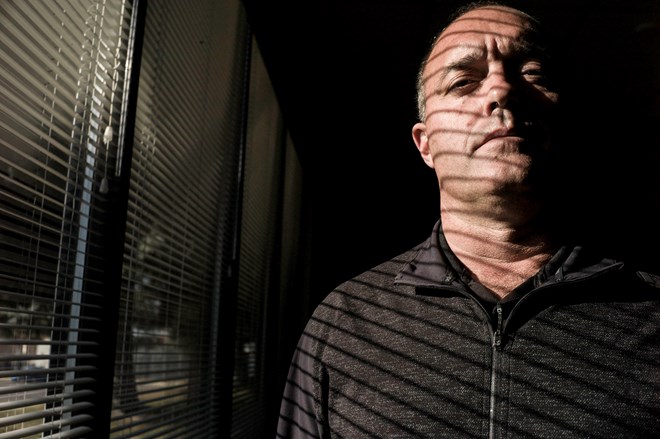“James Bluemel’s jaw-dropping series gets better and better, and should be required viewing for every head of state”
Once Upon a Time in Iraq, BBC2
“The second part [of this series] was shockingly different. Most of it focused on the testimony of Lieutenant Colonel Sassaman, with different perspectives supplied by two journalists who encountered him in the field — New York Times writer Dexter Filkins and war photographer Ashley Gilbertson. At first, Sassaman seemed a decent, sympathetic figure — an idealist tormented by the things he saw. He was at pains to emphasise that all he ever wanted was to cement peace and democracy in the Middle East. It took 40 minutes for the full horror of what he became to dawn on the viewer.
Christopher Stevens, Daily Mail
“James Bluemel’s jaw-dropping series gets better and better, and should be required viewing for every head of state. This is largely because of the contribution from Waleed Nesyif, who eloquently linked past with present. Aged 18, he acted as an interpreter for the army and filmed what he saw on his phone. We saw a little girl, Alaa Adel, in 2003, her face shredded with shrapnel and an eye ripped out from an attack on a Hummer by insurgents. Several children died. Then here was Alaa in front of us today, a pleasant young woman with a glass eye and a scar on her cheek, weeping. “I hope what happened to Iraq happens to America,” she said. “I’ve never wished harm on anyone, but I wish it on them.” What a grotesque mess.”
Carol Midgley, The Times
Strasbourg 1518, BBC2
“If you have spent lockdown bouncing off the walls in despair, then Jonathan Glazer has got just the thing for you. Working remotely with nine acclaimed dancers, the director of Sexy Beast, Birth and Under the Skin has, in Strasbourg 1518 (BBC Two), crafted one of 2020’s defining films: an almost wordless and plotless ten-minute short about people stuck indoors alone, going mad.”
Robbie Collin, Telegraph
“From a woman gasping for water to a man throwing himself from wall to wall, Glazer’s spiky choreography cleverly suggested both the desperation that these people must have felt as they were compelled to keep moving and the strange relief that the simple act of dancing appeared to bring. In that sense, it could be seen not just as a response to the invisible virus moving among us now but also as an acute study of addiction and desire, in which a vast chasm of emotion was suggested in a remarkably brief period of time.”
Sarah Hughes, The i
“I found the jarring, discordant score by Mica Levi to be “triggering” to a grating degree. I see that it was entirely appropriate to the subject, but — feel free to call me a philistine, and plenty have — I preferred watching it with the sound off.”
Carol Midgley, The Times
Enterprice, BBC One
“Social struggles aside, Enterprice is the kind of series you can’t help but smile at; in a later episode, the pair make a song to promote their business, to the tune of Biggie Smalls’s Juicy: “It was all a dream, Jeremiah and Kazim, we’re the Speedi-Kazz team, we deliver the goods you need to your front door … but we don’t deliver crack cocaine, no heroin, no crystal meth, no horse tranquillisers.” The later addition of a Nigerian love interest for Kazim, Ire, also allows Ewumi to incorporate his own background further, in joyous fashion.”
Hannah J Davies, The Guardian



























No comments yet